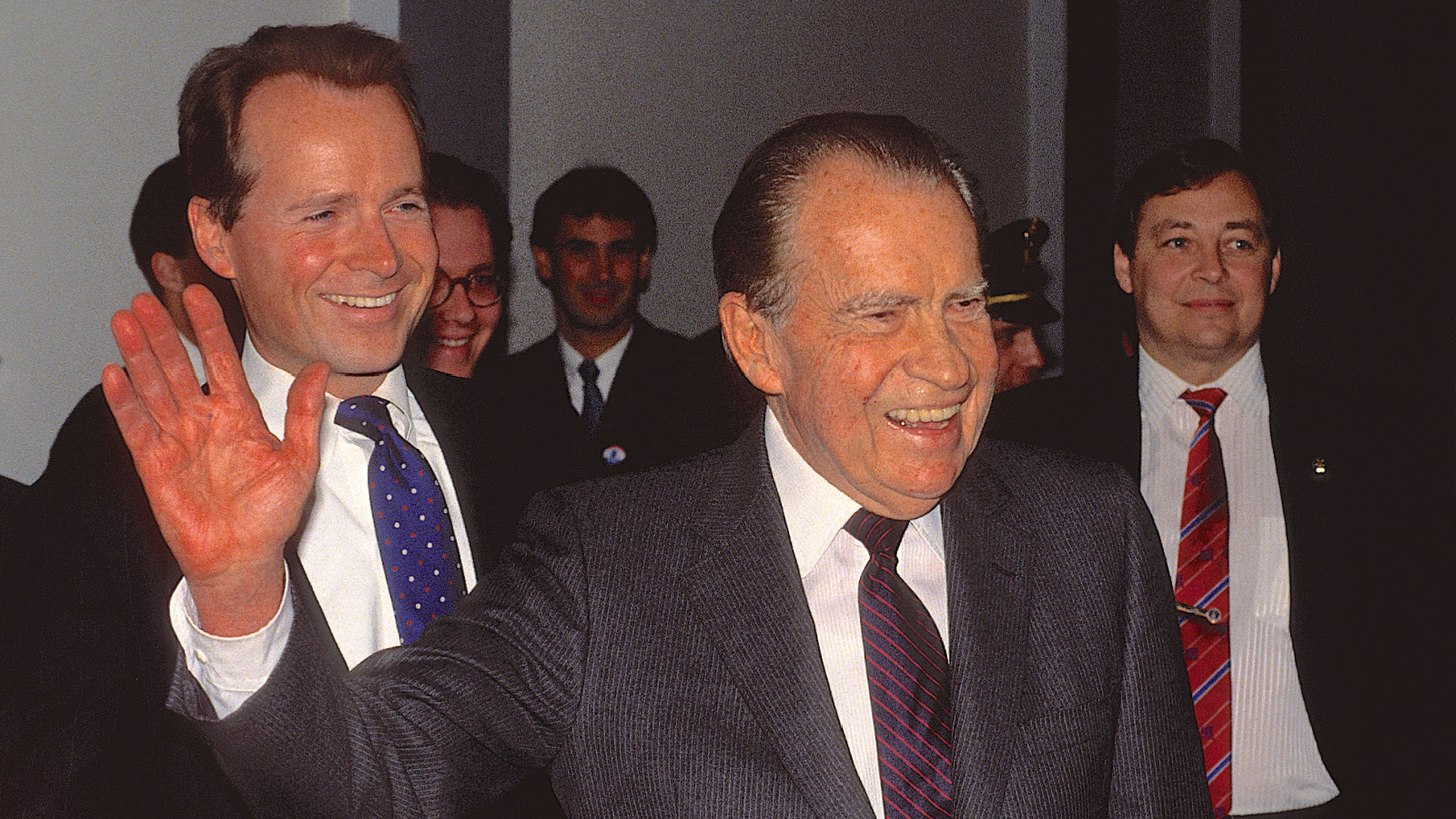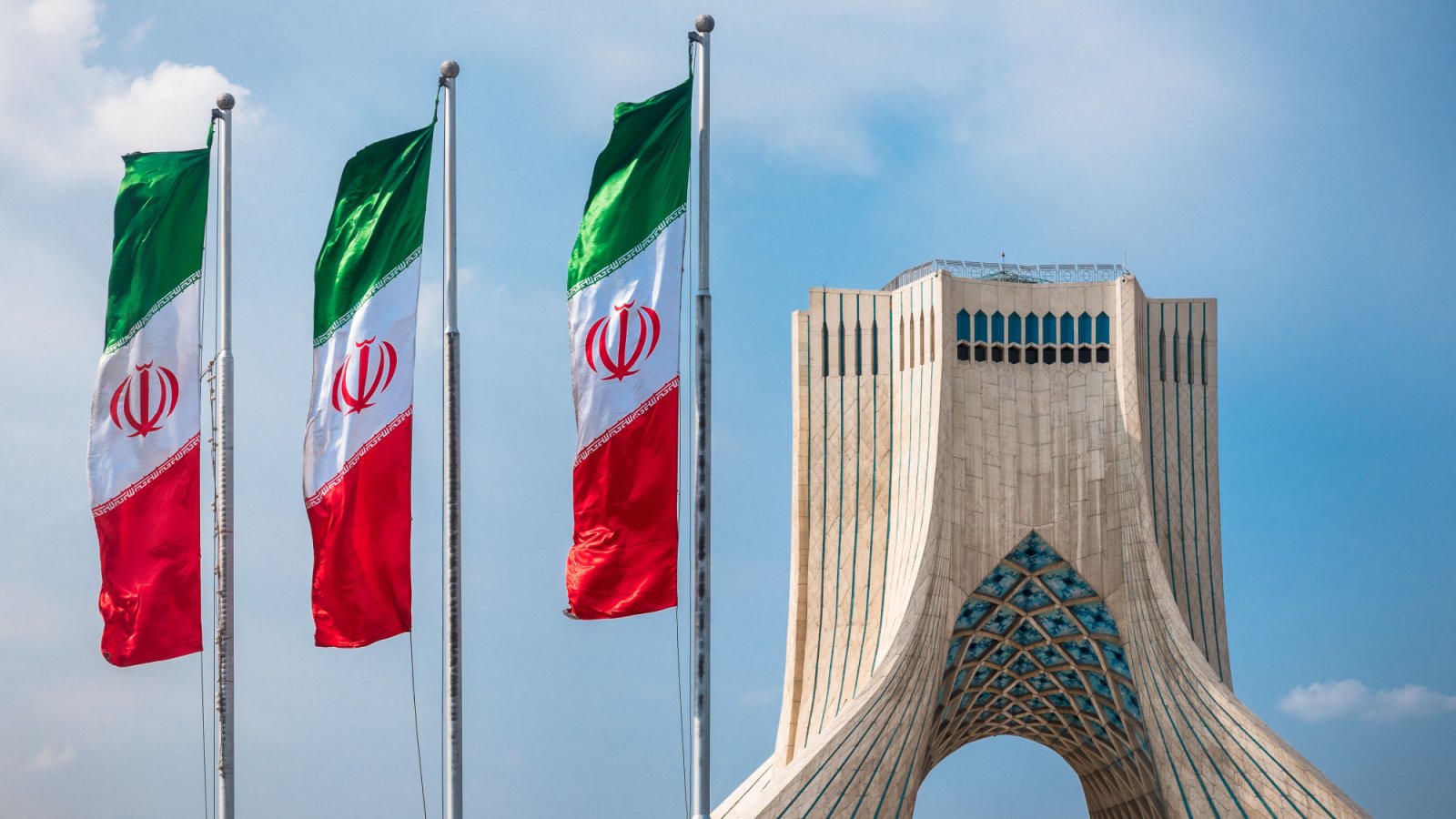As the 1970s unfolded, the world witnessed a series of events that would forever alter the fabric of society. From groundbreaking technological advancements to pivotal moments in politics and social movements, these stories resonate with a force that transcends generations. Let’s rediscover the milestones that defined an era and continue to shape our world today.
Moon Landing

In 1969, astronauts Neil Armstrong and Buzz Aldrin made history by walking on the moon, an event that deeply resonated throughout the 1970s. People around the world were glued to their TV screens, witnessing humanity’s giant leap. This monumental achievement inspired a generation with dreams of space exploration and scientific discovery.
Watergate Scandal

The Watergate scandal, climaxing in the early ’70s, led to President Richard Nixon’s resignation in 1974. It began with a break-in at the Democratic National Committee headquarters and escalated into a political scandal unparalleled in American history. The nation watched in disbelief as the details unfolded, shaking trust in political institutions.
Vietnam War Ends

In 1975, the Vietnam War came to a tumultuous end, marking a close to one of the most divisive conflicts in U.S. history. The images of the last helicopters leaving Saigon remain etched in the memories of those who lived through it. The war’s conclusion brought relief, but also deep reflection on its cost and consequences.
Oil Crisis

The 1970s oil crisis sent shockwaves through the global economy, starting with the OPEC oil embargo in 1973. Long lines at gas stations and soaring fuel prices became the new normal, drastically changing everyday life. This crisis highlighted the world’s dependence on oil and spurred interest in alternative energy sources.
Disco Fever

Disco took the world by storm in the late ’70s, defining the decade’s music and nightlife. With its upbeat tempo and danceable rhythms, disco became more than just a music genre; it was a cultural phenomenon. Nightclubs like Studio 54 became the epicenters of fashion, music, and glamour.
Environmental Movement

The first Earth Day in 1970 sparked a global environmental movement, making the decade pivotal for environmental awareness. Legislation like the Clean Air Act and the Endangered Species Act were passed in response to growing concerns over pollution and conservation. This era laid the foundation for the modern environmental movement.
Women’s Liberation

The women’s liberation movement gained significant momentum in the 1970s, challenging traditional gender roles and advocating for equality. Milestones included the legalization of abortion with the Roe v. Wade decision in 1973 and the push for the Equal Rights Amendment. This period was a critical step forward for women’s rights and gender equality.
Fall of Saigon

The Fall of Saigon in 1975 marked the end of the Vietnam War, symbolizing a moment of profound change and loss. As North Vietnamese forces captured the city, the world watched the desperate evacuation efforts. This event signified the painful closure of a contentious chapter in American and Vietnamese history.
Star Wars Craze

In 1977, Star Wars premiered, forever changing the landscape of cinema and popular culture. The epic space opera captivated audiences with its groundbreaking special effects, memorable characters, and a timeless story of good versus evil. It spawned a massive franchise and fanbase that endures to this day.
Iran Hostage Crisis

The Iran Hostage Crisis began in 1979 when militants stormed the American embassy in Tehran, taking 52 Americans hostage. The standoff lasted 444 days, dominating headlines and nightly news broadcasts. It was a tense period of negotiations and failed rescue attempts, impacting U.S.-Iran relations for decades to come.
Punk Rock Explosion

Punk rock emerged in the mid-70s as a rebellious counterpoint to mainstream music, characterized by its raw sound and DIY ethic. Bands like The Ramones and The Sex Pistols challenged the music industry with their anarchic spirit. Punk’s influence extended beyond music, affecting fashion and culture.
The Rise of Personal Computing

The late 1970s witnessed the birth of the personal computer, revolutionizing the way people work, communicate, and entertain. Companies like Apple and IBM introduced computers that were accessible to the average person. This innovation marked the beginning of the digital age, transforming society in ways that were unimaginable at the time.
Jonestown Massacre

In 1978, the Jonestown Massacre shocked the world as over 900 members of the Peoples Temple, led by Jim Jones, died in a mass suicide-murder in Guyana. This tragedy highlighted the dangers of cults and charismatic leaders. It remains one of the most significant losses of American civilian life in a non-natural disaster until September 11, 2001.
Cable Television

The introduction of cable television in the 1970s changed the media landscape, offering viewers a more comprehensive range of content. This innovation led to the growth of specialty channels and transformed how people consumed news and entertainment. The era of limited TV channels was coming to an end, opening up new possibilities for broadcasters and audiences alike.
Skylab

Skylab, America’s first space station, was launched in 1973, marking a significant achievement in space exploration. It hosted astronauts for long-duration missions, conducting experiments that provided valuable data on living and working in space. Skylab’s success laid the groundwork for future space stations, including the International Space Station.
Elvis Presley’s Death

The death of Elvis Presley in 1977 left the world in mourning, marking the end of an era for rock and roll. Known as the “King of Rock and Roll,” Presley’s influence on music and culture was unparalleled. His passing was felt deeply by fans worldwide, symbolizing the loss of a music legend.
The Concorde

The Concorde began commercial flights in 1976, symbolizing a new era in air travel with its supersonic speeds. This technological marvel cut transatlantic flight times in half, although its high operating costs eventually led to its retirement. The Concorde remains a symbol of innovation and ambition in aviation.
The Birth of Hip Hop

Hip hop music originated in the late 1970s in the Bronx, New York City, from a melting pot of influences. Its early forms were a creative outlet for expressing the social and economic challenges faced by African American and Latino communities. Hip hop quickly spread, becoming a global cultural and musical movement.
Three Mile Island Accident

The Three Mile Island nuclear accident in 1979 raised serious concerns about the safety of nuclear power. It was the worst accident in U.S. commercial nuclear power plant history, leading to widespread fear and a reevaluation of nuclear energy policies. The incident played a crucial role in shaping regulations and attitudes towards nuclear energy.
Microsoft Founded

In 1975, Bill Gates and Paul Allen founded Microsoft, a company that would become synonymous with personal computing. Their vision of a computer on every desk and in every home was revolutionary. Microsoft’s development of software like MS-DOS and later Windows changed the technology landscape forever.
The SALT Treaties

The Strategic Arms Limitation Talks (SALT) between the United States and the Soviet Union in the 1970s were pivotal in the Cold War. These agreements aimed to prevent the escalation of nuclear arms and promote détente. The SALT treaties represented a rare moment of cooperation between the two superpowers, easing tensions and fostering a more stable international environment.
Saturday Night Fever

Saturday Night Fever, released in 1977, not only popularized disco music but also became a cultural icon of the era. Starring John Travolta, the film captured the essence of the disco scene and its impact on society. Its soundtrack, featuring the Bee Gees, became one of the best-selling of all time.
The Endangered Species Act

Enacted in 1973, the Endangered Species Act became a cornerstone of environmental conservation in the United States. It was designed to protect critically endangered species from extinction as a consequence of economic growth and development. This legislation has played a crucial role in the preservation of biodiversity and the protection of vulnerable species.
The First Test Tube Baby

In 1978, Louise Brown became the world’s first baby to be conceived via in vitro fertilization (IVF), marking a breakthrough in reproductive technology. This momentous event offered hope to countless couples struggling with infertility. The success of IVF has since led to the birth of millions of babies worldwide, changing the landscape of reproductive medicine.
Rocky Horror Picture Show

The release of The Rocky Horror Picture Show in 1975 unleashed a cult classic that defied traditional norms and embraced the unconventional. Its unique blend of science fiction, horror, and musical genres attracted a dedicated fan base. The film’s midnight screenings became a cultural phenomenon, encouraging audience participation in a way few films had before.









Hier können Sie in wenigen Sekunden alle Informationen erhalten,
die Sie benötigen. Der Live Chat bietet sich vor allem dann sehr
gut an, wann Sie schnell eine Antwort auf Ihre Frage benötigen. Das Woo Casino bietet Ihnen ein sehr
hohes Maß an Sicherheit.
Dieser Kundenservice ist per Sofort-Chat verfügbar und
bietet Ihnen die Möglichkeit, Ihr Problem den technischen Teams der Marke zu schildern.
Mit jeder neuen Stufe erhalten die Spieler eine Belohnung, die von der Marke zur Verfügung gestellt wird.
Es ist ganz einfach, an diesem Turnier teilzunehmen und den Hauptpreis von ca.
Spieler erwartet im Woo Casino eine vielfältige und hochwertige Auswahl an Automatenspielen, klassischen Tischspielen sowie echten Live Dealer Erlebnissen. Supportanfragen an werden in der
Regel innerhalb von zwei bis vier Stunden beantwortet.
Im Woo Casino kannst du bis zu vier verschiedene Slots auf einmal laden und gleichzeitig spielen. Die
modernsten Titel, eine große Spielesammlung, regelmäßige Updates und
ein Willkommensbonus sind nur einige der Dinge, die du in der coolen, gutaussehenden Lobby finden wirst.
Wenn du mindestens 20€ einzahlst, kannst du einen 100% Bonus bis
zu 100€ und 150 Freispiele für den Wolf Treasure Slot erhalten.
References:
https://online-spielhallen.de/500-casino-deutschland-ein-umfassender-uberblick-fur-spieler/
The emphasis at this casino is on table games and poker.
This lack of poker machines, which is a staple at most casino venues in Australia, has impacted the ability of Casino Canberra to expand.
The casino’s operators have campaigned for a law change since the very beginning, but the ACT has stood firm time
and again due to concerns over draining revenue from Canberra’s clubs
and pubs. There are plenty of gaming options nonetheless,
from baccarat to roulette to poker, but pokies players will
have to look elsewhere for the time being. Notable guests at the launch included former Prime
Minister, Bob Hawke, who actually won the golden roulette ball from the first roulette wheel spin in the temporary casino.
Due to local legislation, the casino does not offer any poker machines (more on that
later).
The loyalty program offers three tiers of membership (Gold, Ruby, and Diamond) with
each tier unlocking a new realm of benefits. Simply present your Infinity Rewards
card to your dealer when you sit down at the table, and at the end of your session of play,
your points will be calculated. This membership lets you earn points as
you play so that you can redeem exclusive offers on dining, accommodation, gifts,
and much, much more! Able to cater to a range of dietary requirements,
our chefs are pushing the boundaries of Cantonese cooking to give you a truly memorable gastronomic experience for any occasion.
References:
https://blackcoin.co/lakeside-inn-and-casino-an-in-depth-look/
However, instead of using the actual lighting
conditions to adjust the screen brightness, it works depending on the time of
day. Windows also offers a feature known as Adaptive Brightness, which automatically adjusts your screen brightness based on surrounding
light levels. The Settings app provides a more detailed approach for adjusting screen brightness
and is also an excellent tool for troubleshooting display issues.
Windows 10 and 11 offer multiple methods to manage screen brightness settings, tailoring the display to your specific environment and preferences.
Auto-brightness uses sensors to detect ambient light and adjusts your screen brightness
accordingly. Some computer models have an integrated light sensor, which enables the screen brightness
to adjust automatically to changing light conditions.
With these nine methods at your disposal, you can easily optimize your display
settings for comfort and usability, whether you’re working, gaming, or enjoying media.
This method requires a certain level of familiarity with command-line interfaces but offers a robust option for
managing your display settings. This method is less common but useful if you
want to create scripts to adjust settings automatically.
References:
https://blackcoin.co/ready-to-cast-some-winning-spells/
online american casinos that accept paypal
References:
https://shiftlycrew.com
paypal casinos online that accept
References:
australiaremotejob.com